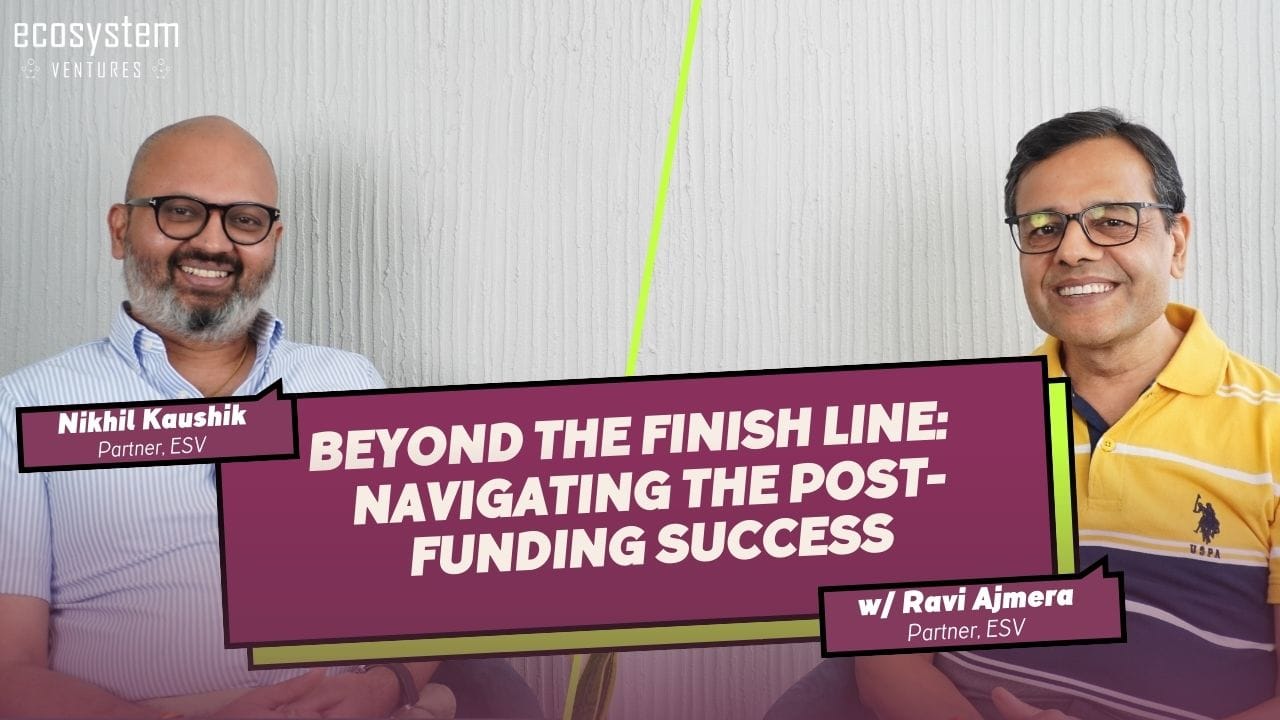ESV Times | Monthly Newsletter | July 2024
In the world of finance, debt predates equity as a source of capital for a business venture. But startups are unable to access the traditional debt funding channels, as banks base their lending decisions on rigid criterion of revenue, credit scores, and time-in-business. Additionally, banks require assets to be used as collateral, which startups generally do not have.v
“Venture Debt funds” address this market-gap by providing short-term debt to startups. They act as specialized lenders who are willing to take on a higher level of risk in exchange for the potential of higher returns.
Typically, the underlying instrument in venture debt is a “non-convertible debenture” (NCDs). NCDs are coupon-bearing instruments issued by the startup to the debt fund. In addition to this coupon-bearing instrument, debt funds also subscribe to equity warrants of the startup, which gives them the right to subscribe to equity of the startup at a pre-determined price within a specific period.
For startup founders, debt funds provide time-critical cash without giving up too much ownership. They bridge the gap between funding rounds, extend their runaway, and sustain their growth momentum. Furthermore, debt funds offer founders more flexibility and convenience in deal structuring, in terms of repayment schedule, and exercise of warrants.
For Investors, it is a win-win, as they can enjoy a more predictable return on their investment through regular coupon payments and principal repayment, as well as participate in the equity upside through future funding rounds when the warrants are typically exercised.
Thus, due to lower cost of capital, faster disbursal, less dilution for founders on one side and predictable RoI, equity upside, CAT II fund tax benefits for investors on the other side, debt funds are becoming a popular option for raising capital in the Indian startup ecosystem.
But the key challenges to craft a win-for-all debt funding deal must not be overlooked. These challenges emerge as a lack of adequate data and information on the startup’s performance and creditworthiness, makes it difficult to assess the risk and return of the investment.
At Ecosystem Ventures, we prioritize architecting a deal structure which is fair to all stakeholders by leveraging our deep domain expertise, and extensive network, to source, evaluate, and architect the best investment deals for our investors and founders. This is coupled with end-to-end support and guidance to our partners throughout the debt funding process, ensuring transparency, efficiency, and alignment of interests.
Ecotone – Podcast of ESV
Beyond the Finish Line: Navigating the Post-Funding Success with Ravi & Nikhil
Founding a startup is a marathon, not a sprint. And fundraising? Just one crucial checkpoint. This episode features Nikhil Kaushik and Ravi Ajmera discussing the pitfalls that can derail founders after a funding round. Learn how to manage funds wisely, build strong governance, and maintain investor trust. Tune in to secure your post-funding success!
.jpg)
| Click Here |
Startup 101 – Resources for founders & startup teams
Work-logs: A Key to Employee Productivity
Early-stage startups tend to overlook the importance of work-logs as part of their personnel management. Work-logs are not just a way to track the hours and tasks of the employees, but also a tool to enhance their productivity, motivation, and accountability. By maintaining work-logs, employees can set clear goals, prioritize their work, monitor their progress, and identify any challenges or issues that need to be resolved. Work-logs also help managers to provide timely feedback, recognize achievements, and address any performance gaps.
Implementing a work-log system does not have to be complicated or costly. It can start with a simple Google sheet, where employees can enter their daily or weekly activities, hours, and outcomes. As the complexity and scale of the work increases, the company can leverage Google Apps Script to create a robust enterprise-wide work-log management system, that can automate the data collection, analysis, and reporting. Google Apps Script is a powerful scripting platform that can integrate with various Google services, such as Gmail, Calendar, Drive, and Sheets, and create custom applications and workflows.
At our company, we have automated such productivity enhancing best practices in-house. Here is a Google sheet template for you to download and use for your own work-log system. If you want to learn more about how we can help you create a custom work-log application using Google Apps Script, get in touch with us today.
Net Present Value – Performance of ESV Portfolio Companies
.png)
Net Present Value – Performance of ESV Portfolio Companies
.png)


Comments are closed.